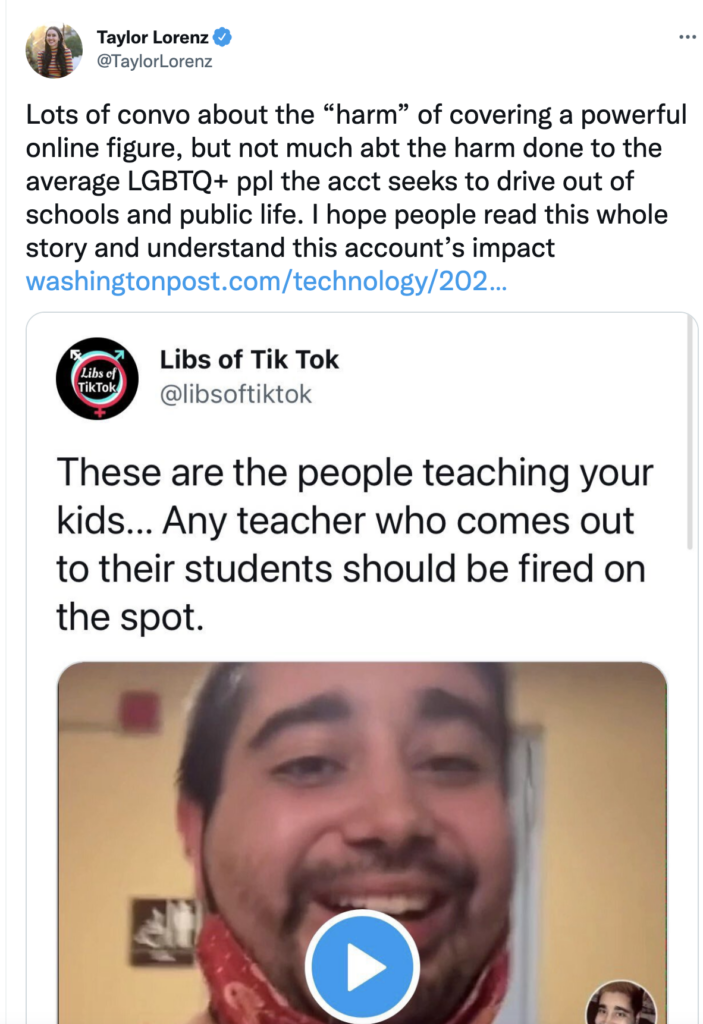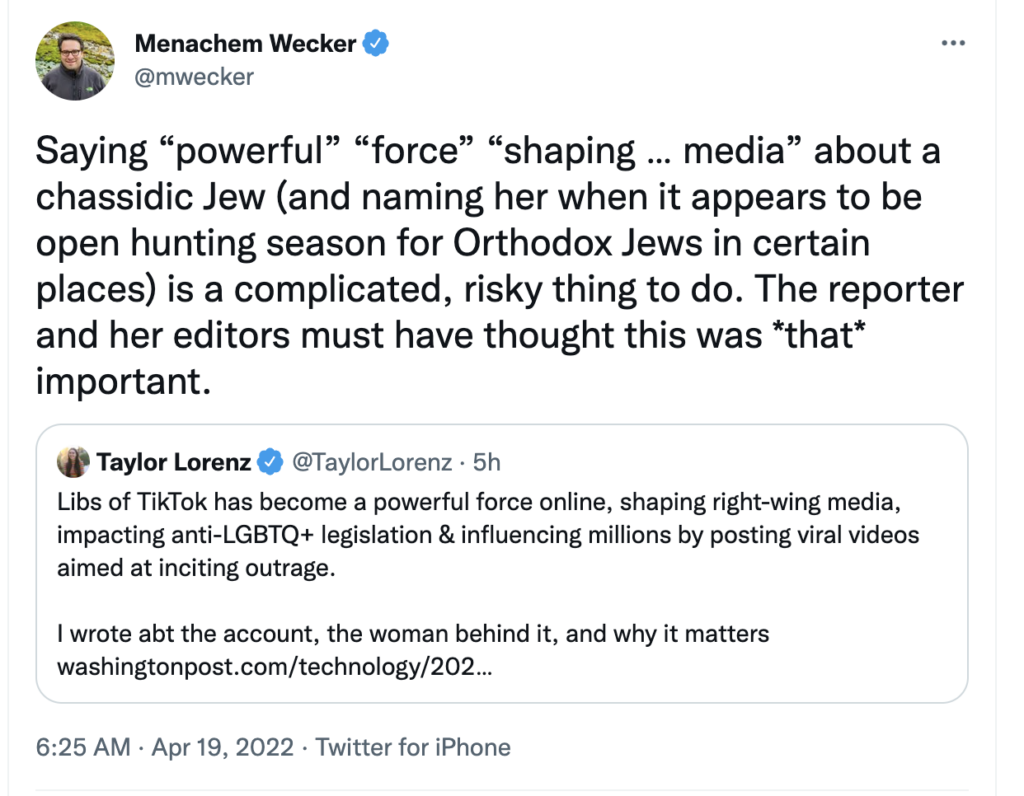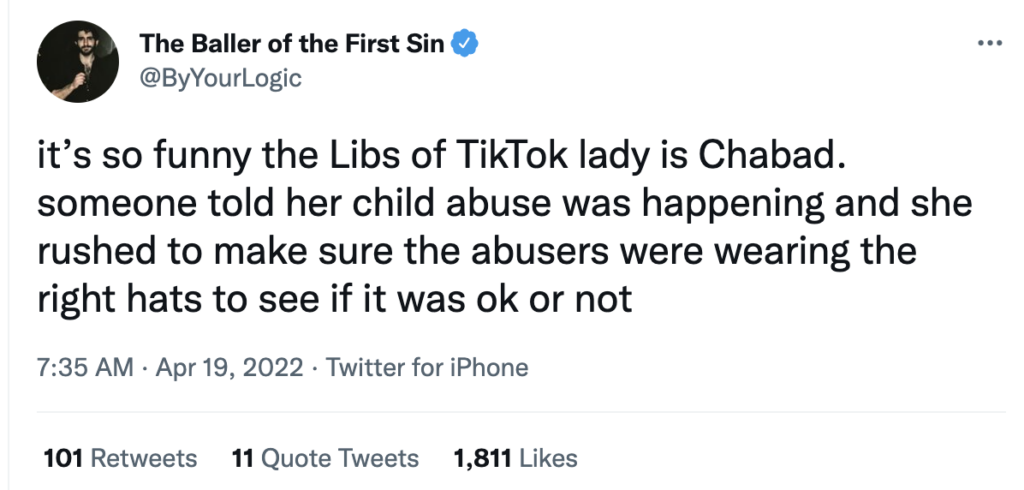Washington Post reporter Taylor Lorenz’s hit piece on the popular “Libs of TikTok” Twitter account was not her first foray into doxxing private citizens, but she certainly brought a new twist to the genre when she portrayed the account owner as a “powerful” Orthodox Jew who is “shaping” the media.

Instead of exploring the more interesting phenomenon of how left-wing educators’ TikTok videos became viral sensations, even jumping from social media to cable news, Lorenz had her mind set on — in her own words — “exposing” the woman behind the account.

Instead of asking why so many teachers are making TikTok videos about their political agendas in the classroom, Lorenz lazily turned to activists at far-left institutions like Media Matters and the ACLU for comment on how an account curating these public videos is “secretly fueling the right’s outrage.”
Gillian Branstetter, a media strategist for the ACLU, characterized the Libs of Tik Tok account as “finding new characters for right-wing propaganda,” as opposed to what the account is actually doing, which is sharing already viral online public videos posted by the so-called “characters” themselves.
Lorenz’s “reporting” is similar to usual corporate media hit pieces on conservatives, with the obvious goal of chilling speech and intimidating anyone who dares to challenge the regime’s narrative, which apparently now includes private citizens. But Lorenz took it a step further by dabbling in the long-held anti-Semitic trope that “Jews control the media.”
The piece is so clearly agenda-driven that it would be laughable if it wasn’t so dangerous and appalling. At a time when anti-Semitic attacks in the U.S. are at an all-time high, editors at The Washington Post thought it was a good idea to identify a private citizen as an Orthodox Jew, a detail that is entirely irrelevant to the story, then link to said person’s real estate license, including the person’s name, real estate license number, and physical address. The newspaper only removed the link after public pushback.

The Jew who somehow pulls puppet strings — be it politically or by influencing the media — is a core anti-Semitic trope and stereotype that has emerged throughout history. By portraying her subject as a “proud” Orthodox Jew and “as a powerful force on the Internet, shaping right-wing media, impacting anti-LGBTQ+ legislation,” Lorenz’s “reporting” feels uncomfortably close to that stereotype.
Right on cue, after Lorenz’s story went live Tuesday morning, the now-doxxed Jewish woman behind the Libs of TikTok account became an open target. Felix Biederman, host of the “dirtbag left” podcast, “Chapo Trap House,” tweeted this:

Even though Lorenz has a history of calling doxxing “reporting,” even going as far as doxxing the children of Jewish conservative commentators, it remains unclear how The Washington Post justified putting journalistic ethics aside to let its resources be used to intimidate private individuals and their family members for the sake of silencing and discrediting political enemies.
Lorenz set out to paint a picture of Libs of TikTok as someone doxxing innocent LGBT teachers and private individuals by reposting their own publicly-shared TikTok videos, but ironically, Lorenz ended up doing the very type of doxxing she falsely accuses her subject of — and with an anti-Semitic trope to boot.









